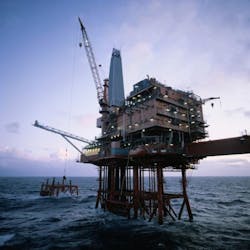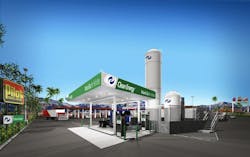Boy is it EVER! And what a shot in the arm it potentially offers for the U.S. – if we’re bold enough and wise enough to seize it!
In the New Policies Scenario within the WEO, the IEA predicts that the U.S. will become a net exporter of natural gas by 2020 and almost self-sufficient energy-wise, in net terms, by 2035. Also, North America emerges as a net oil exporter by 2020, according to IEA’s analysis, accelerating the switch in direction of international oil trade with almost 90% of Middle Eastern oil exports being sent to Asia by 2035.
“North America is at the forefront of a sweeping transformation in oil and gas production that will affect all regions of the world,” noted IEA Executive Director Maria van der Hoeven. What she calls this “extraordinary growth in oil and natural gas output in the U.S.” will in turn engender a “sea-change” in global energy flows.
Here’s the big trend: what the IEA dubs the “recent rebound” in U.S. oil and gas production – driven not only by upstream technologies that are unlocking light tight oil and shale gas resources but done so on private lands in the face of resistance by the federal government – is spurring American economic activity with less expensive gas and electricity prices, giving North American industry a competitive global edge.By around 2020, the IEA projects that the U.S. will become the largest global oil producer – overtaking Saudi Arabia until the mid-2020s – with U.S. oil imports falling. By 2030, North America as a whole is predicted to become a net oil exporter around 2030, thus switching the direction of international oil trade towards Asia and putting a focus on the security of the strategic routes that bring Middle East oil to Asian markets.
End result: The U.S., which currently imports around 20% of its total energy needs, becomes all but self-sufficient in net terms – a dramatic reversal of the trend seen in most other energy importing countries.
Yet while those regional dynamics change, global energy demand will push ever higher, growing by more than one-third to 2035. China, India and the Middle East will account for 60% of the growth, while demand will barely budge in the OECD [Organization of Economic Co-operation and Development] nations – largely referring to the U.S., Canada, and Europe.
Just think about that for a minute. No longer will the U.S. be tied strategically to the Middle East. In fact, it’ll be the Chinese stuck with the brunt of such strategic worry (good luck with the Palestinians and the Jihadists, you guys).Now, here’s the second part of this equation: even as the prospect of huge domestic oil reserves makes itself know, efforts continue apace to expand the infrastructure for natural gas transportation in the U.S. – the most recent being a deal struck between General Electric (GE) and Clean Energy Fuels.
That deal calls for the acquisition and use of GE’s “MicroLNG” production system, which Clean Energy will use to make 250,000 gallons of liquefied natural gas (LNG) per day, or about 54 million DGEs (diesel gallon equivalents) per year with the built-in capability for further expansion. GE said this new technology will help reduce a fleet operator’s fuel costs by more than 25% compared to diesel fuel, with the volume of LNG produced with the natural gas production technology from one such plant capable of supporting 28,000 heavy trucks.Sure, a lot of truckers will say, “heck, if the U.S. is going to be producing so much oil, why switch my truck to run on LNG?” The best reason is this: if oil prices – and thus diesel prices – stay high, we can sell that “black gold” overseas for top dollar while operating our transportation network on cheaper (and domestically produced) natural gas.
And those “petro dollars,” if we’re smart, can pay off our $16 trillion nation debt – probably in record time, too – without having to raise income taxes.
Whoa! Talk about a huge potential “win-win” for our nation!
Ah, but of course, the devil’s in the details with all of this. Will the Obama administration change its stance on domestic energy production? Can the administration and Congress work out a deal to exclusively reserve government royalties from oil and gas production for paying off the national debt?
Those of course are the 65,000 questions (maybe the 65 TRILLION dollar questions if we’re so fortunate!) Can we as a nation benefit the potential opportunity being offered to us in terms of energy independence? We’ll just have to wait and see.




